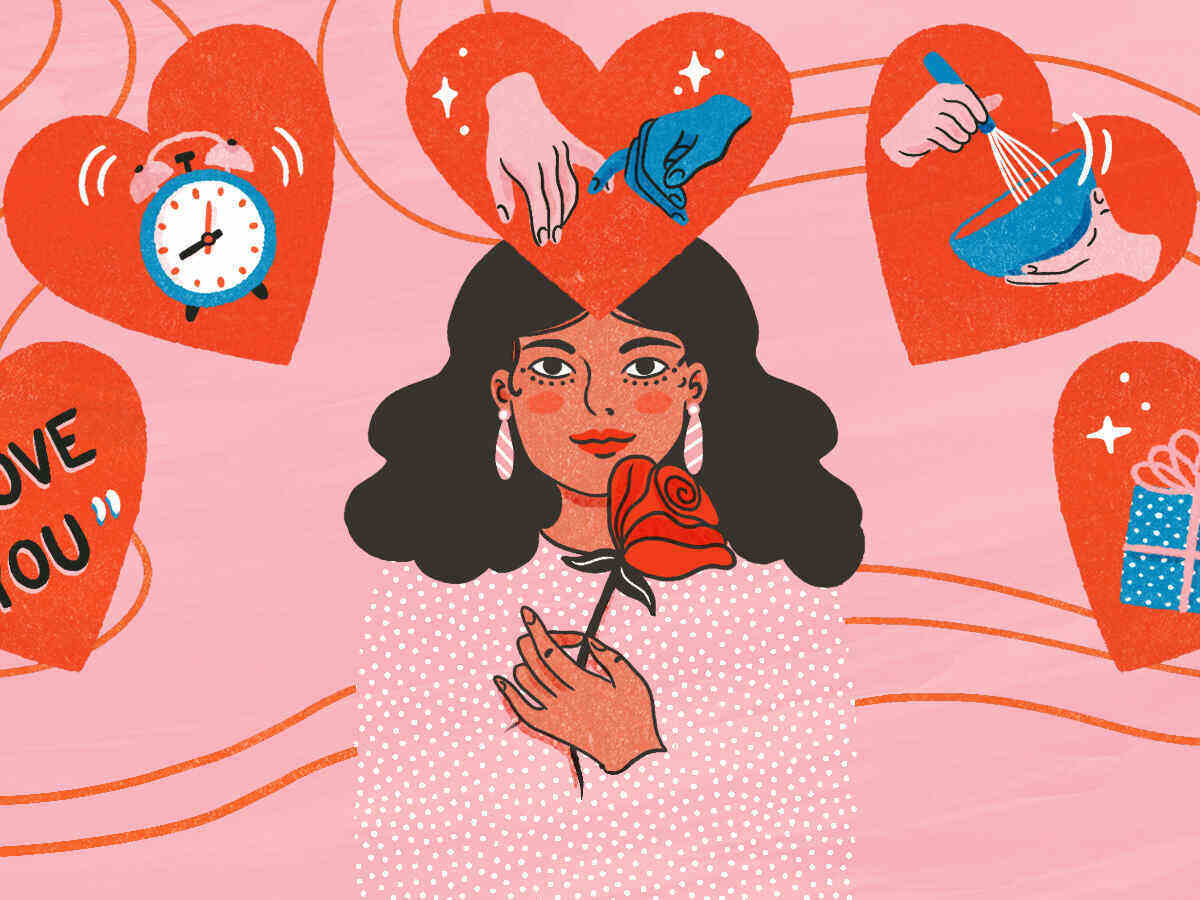Do you know about love languages types? Are you interested to know about the types of love language in detail? Here you can know about 5 love languages particularly.
One of the leading causes of relationship dissatisfaction is a breakdown in communication. Nearly 65 percent of divorces are caused by a breakdown in communication. You may show your love for your relationship on a regular basis, but do you take the time to make sure you’re conveying it in the way your partner prefers? When two couples speak different love languages, even love can be lost in translation.
However, simply communicating with your partner is insufficient. Knowing how to speak with your partner in the proper way can help revive stale relationships or add spice to those seeking greater intimacy in their communication. So, since they’re so dissimilar, how can we truly connect with them?

Gary Chapman’s book The 5 Love Languages was published in 1992 and quickly became a global phenomenon in the field of love and relationships. Those who have read it say it has completely changed the way they interact with their wives and loved ones in relationships. The book’s concept is that we all have a preferred manner of feeling and appreciating love, whether it’s innate or learned. Everyone is different, and just because we expect something one way doesn’t imply our partner doesn’t love us in another way. We’ll give you a quick rundown of the 5 love language types right now. Which ones are your favorites?
How do you know what kind of communication to use? Knowing which types of love language you and your partner respond to can make a big impact on your relationship.
The 5 various types of love language are explained in this beginner’s handbook.

1. Love Language Types: Physical Touch
Physical contact is your love language, which means you thrive when you are physically connected. Hugging, hand-holding, massages, and even non-sexual touch are examples of this. Those who cherish physical contact place a premium on proximity.
There is a lot of physical affection in certain families, with lots of cuddles, kisses, pats on the back, and joyful roughhousing. Others have barely any contact, not because one family is more loving than the other, but because each individual and family has a different manner of expressing the same emotions. Individuals from each of these families may have very different perspectives on what it means to be loved as they grow up. It’s possible that a woman who has grown up with touch as her major means of expressing affection may demand the same from her companions. If she falls in love with someone who has this predisposition and instead chooses words, she may feel uncared for or, in the worst-case scenario, neglected.
2. Types of Love Language: Words of Affirmation
Words of Affirmation Love language is a set of words that you use to encourage and appreciate your love. Poetry, love ballads, and other forms of pillow talk are swooned over by those whose love language is words of affirmation. Words of affirmation can simply mean telling your lover how much you appreciate and value them.
They need to hear from you much more often than you love and care about them. The silent treatment does not work for them. Compliments don’t have to be sophisticated; often the shortest and most straightforward praises are the most powerful.
“You look amazing in that dress!”
“You always make me laugh.”
“Today, I really like your hair.”
If your lover speaks this love language, a few words can make all the difference. A simple “I love you” and a compliment can go a long way. Hostile or offensive statements, on the other hand, might damage your partner, and they may take longer to forgive than others.
If Words of Affirmation are your partner’s primary love language, keep the lines of communication open with them.
3. Love Language Types: Acts of Service
If acts of service are your love language, you appreciate it when your partner goes out of their way to make your life simpler. When you’re unwell, it’s things like bringing you soup, making your coffee in the morning, or picking up your dry cleaning after a long day at work. Acts of service are valued and appreciated by those whose love language is acts of service. This could be anything from filling up their gas tank to picking up groceries to doing laundry – anything that makes their daily routine easier.
They prefer being in the thick of things. They don’t like it when someone spends all day at home or doesn’t follow through on their promises.

4. Types of Love Language: Quality Time
When their partner actively wants to spend time with them and is always down to hang out, people whose love language is quality time feel the most cherished. They adore it when active listening, eye contact, and complete presence are emphasized in the interaction.
If your love language types are quality time, you enjoy spending time with your lover. Some people enjoy spending time together without their phones in a distraction-free environment.
Others enjoy valuable time spent together while watching television. It’s as simple as being there for your lover, whatever form of quality time you enjoy.
5. The Love Language of Receiving Gifts
Some people’s favorite love language is visual expressions of love in the form of presents — this is not related to the monetary worth of the gift, but rather to the thinking process involved in selecting the gift.
Receiving gifts is not a sign of materialism or a desire for just the most expensive and luxurious items. This love language appreciates the attention and effort that went into choosing a present for them.
Check out these products if you want to spice up things in the bedroom for a companion who enjoys getting gifts. They’re ideal as a personal present.
It is possible to be made to feel guilty about valuing things in life. If you need flowers, chocolates, or holidays abroad to feel cared for and appreciated, you’re deemed shallow, lacking substance, or pampered. Surely, only words and cuddling should suffice? No, that’s incorrect. Receiving gifts from others is the major way for some people to know they are appreciated.
Looking for more information on the Love Language Types that apply to you?
Knowing the many love languages types in a relationship can make or break a relationship. If you’re not sure what your love language is, take a love languages quiz with your lover. It can make a huge difference in your relationship.
You’ve come to the correct site if you’re looking for more relationship advice or want to learn how to use the types of love language effectively for couples.
Apart from it, you can read these articles Aloe Vera Juice, the 100 season 8, Salvation Season 3, Shadowhunters season 4, Poldark season 6, Good Place season 5, Madison beer net worth, Gravity Falls season 3, Hunter x Hunter season 7, Marvelous Mrs. Maisel Season 4, Bloodborne 2, Derry Girls season 3, highest paid CEO, and, Bhushan Kumar net worth, you can follow our Entertainment and Business Category.



















![10 Countries With the Best Healthcare in the World [Statistical Analysis] Countries With the Best Healthcare in the World](https://articleify.com/wp-content/uploads/2025/07/Countries-With-the-Best-Healthcare-in-the-World-1-150x150.jpg)









